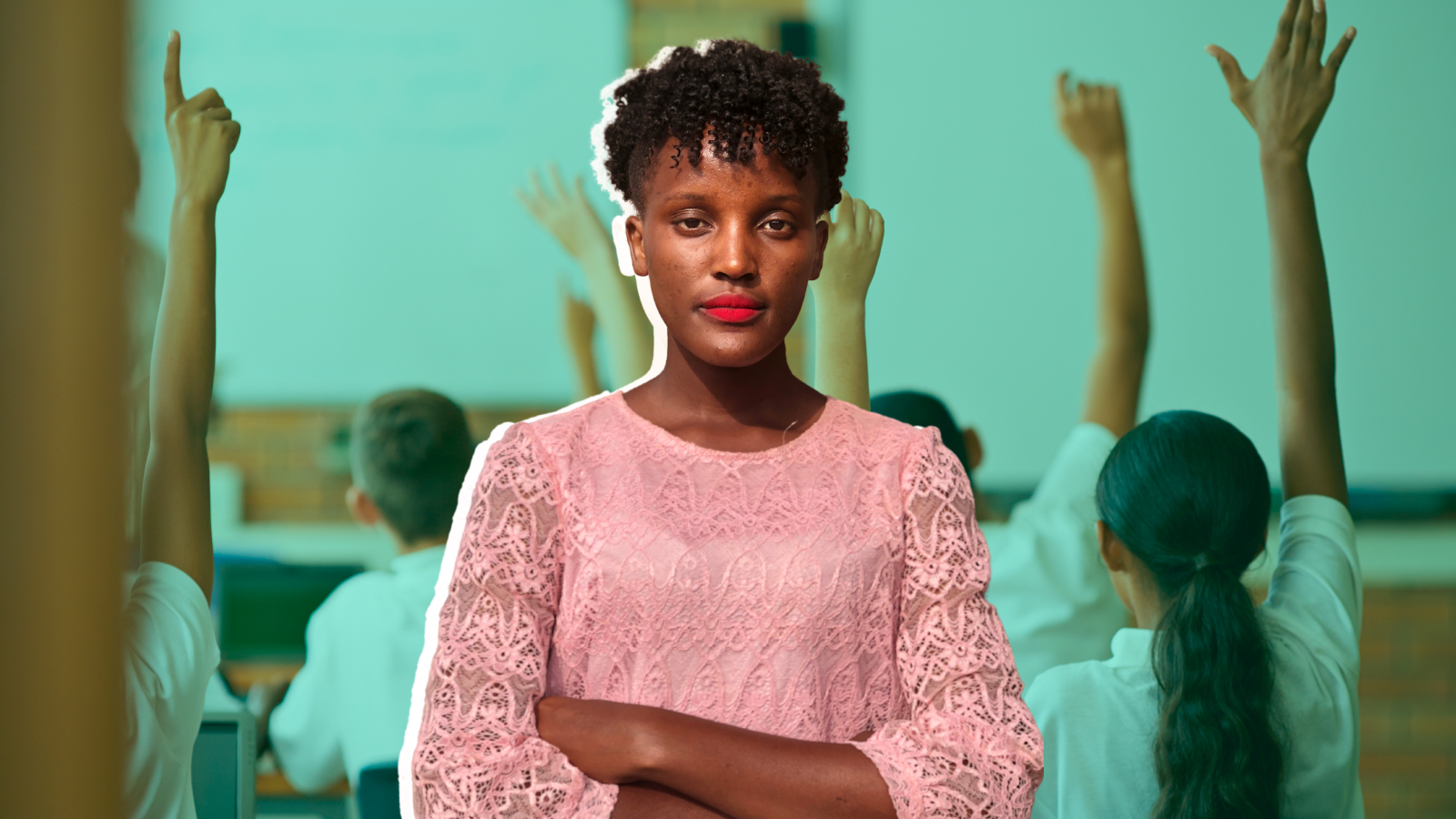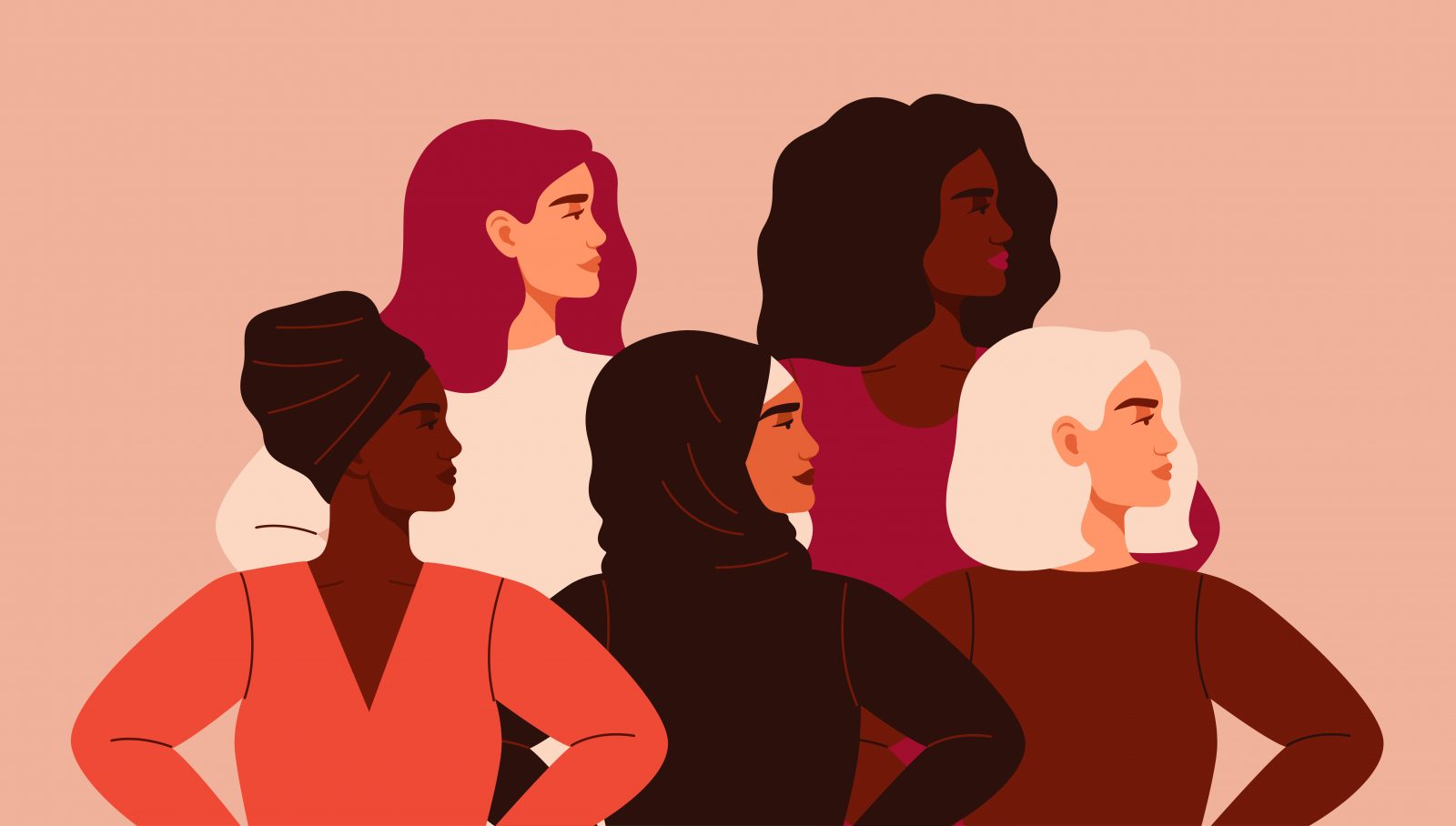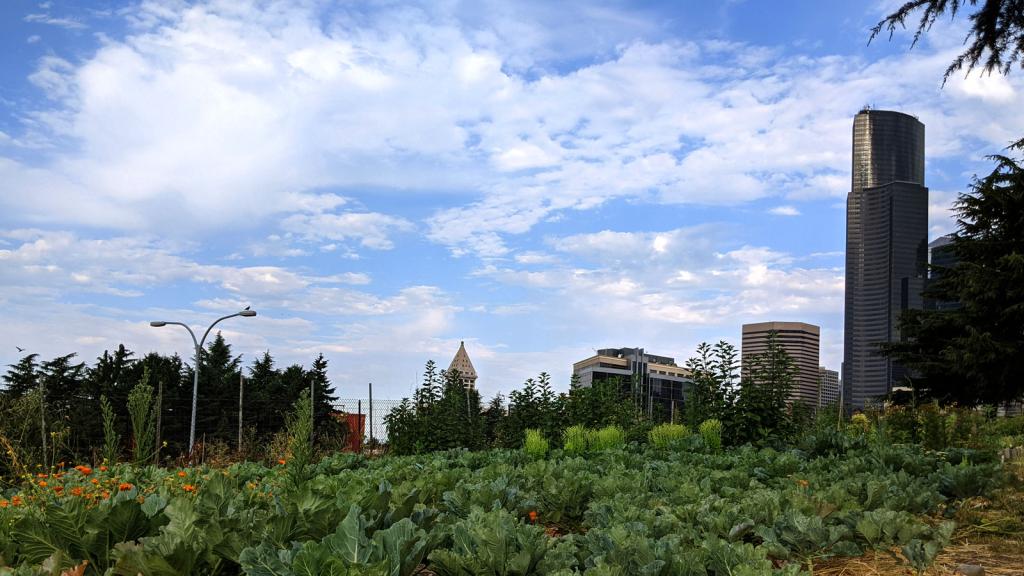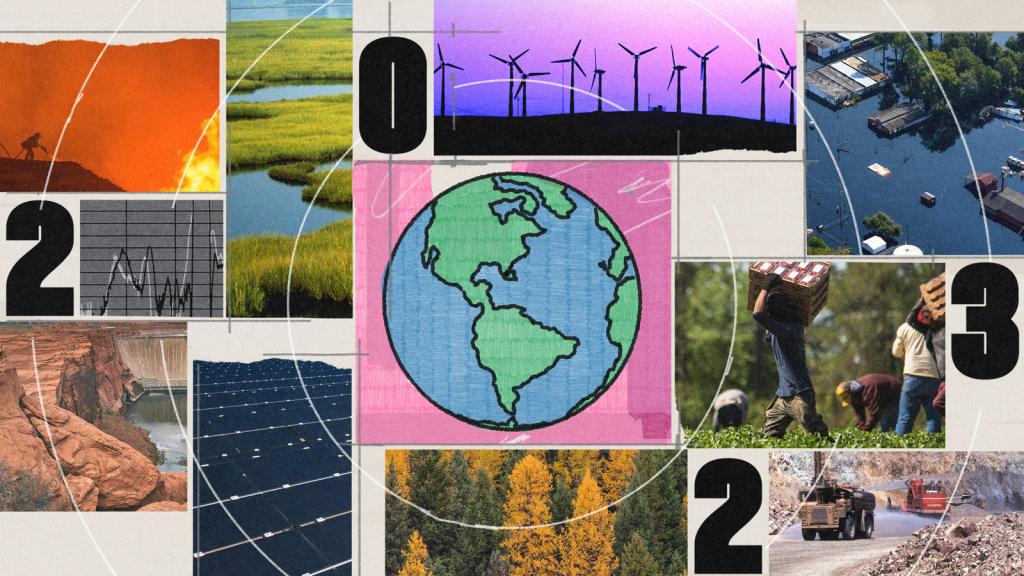Vanessa Nakate is a powerhouse within the youth climate movement. Widely known for her advocacy on behalf of her home country, Uganda, the 24-year-old has served at the United Nations as the secretary-general’s envoy on youth and launched Rise Up Movement to amplify activists throughout Africa. And she’ll be the first to say she wouldn’t be where she is today without something many of her peers lack: an education.
When she was growing up in Kampala, Uganda’s capital city, Nakate’s parents encouraged her to complete all levels of school, including college — a luxury many Ugandan girls can only dream of. She was among the one in four Ugandan girls who graduate from high school, and she earned a degree in marketing from Makerere University Business School. Nakate used the research skills she learned in class to study the causes and impacts of global warming in 2018. Alarmed and frustrated by government inaction, she launched a one-woman strike in 2019. For months, she regularly stood alone outside the Parliament of Uganda, protesting rapid deforestation in the Congo Basin. The ranks of African climate activists have only swelled in recent years. Rise Up Movement has mobilized demonstrators in more than 10 countries throughout the continent.
All that work earned her an invitation to COP25, the U.N.’s 2019 climate conference in Madrid, and the World Economic Forum’s annual meeting in Davos, Switzerland, in early 2020. It was there, after a press conference, that Nakate made global headlines: The Associated Press cropped her out of a photograph in which she posed with four white activists, including Greta Thunberg. Nakate’s video decrying the incident went viral on Twitter, bringing long-overdue attention to the fact that African youth are underrepresented in environmental leadership despite being disproportionately burdened by global warming.
Nowadays, Nakate uses her platform to champion what she calls a crucial but under-appreciated climate solution: increasing access to education for girls. A recent UNESCO study found that only 25 percent of countries have achieved gender equity in high school graduation rates. Unsurprisingly, girls in low-income countries are most disadvantaged. Just 2 percent of the poorest girls in rural areas complete secondary education. In sub-Saharan Africa, where Nakate lives, 86 girls for every 100 boys finish middle school.
Beyond being bad for women, this inequality is bad for the planet. Project Drawdown, which lists 100 essential climate solutions, calculates that securing every girl’s right to an education could reduce emissions by 85.42 gigatons by 2050. That’s roughly what China emits over a decade. Why? Educated women have better access to contraception and are more likely to choose to have smaller families. Reducing unwanted pregnancies could slash emissions by up to 41 percent by the end of the century. Women who have completed school also are more likely to grow up to be, say, leaders who enact climate policy; experts in sustainable agriculture; engineers who advance renewable energy; or activists who, like Nakate, hold the powerful to account. Research also suggests that women’s participation in environmental decision-making leads to better outcomes. Studies in Nepal and India, for example, suggest that women’s involvement in forest management yields improvements in forest health.
Nakate says the knowledge she gained in school set her on her path. That’s why she’s been writing op-eds on education equality for publications like Time and Wired. “Sometimes I think about a scenario [in which] I didn’t have the access to education, how my life would have been,” she says. “I have seen many young girls who have not been able to finish school. I’ve seen how their rights have continuously been suppressed and trampled.”
Nakate made her case to Fix about why improving access to education for girls means saving the planet. Her comments have been edited for length and clarity.
Q. Why is educating girls a climate solution?
A. When we think about solutions to climate change, many times we think about renewable energy, electric vehicles, [and] nature-based solutions, which are important. But when we concentrate [only] on this, we don’t realize that we have another solution: educating girls. Young women are disproportionately affected by the climate crisis, especially in communities where I come from, where society has given specific gender roles for men and women. These roles find women in places where disasters occur. Women are working in the farms where the destruction of crops takes place. The drying of streams and wells [means they] have to walk long distances to collect water for their families. [They have] to think about [children] who are not able to go back to school again because of climate disasters.
When girls are taken to school, they are more resilient to climate disasters and more empowered economically and in their communities. If girls can’t access their right [to education], they can’t find out about what’s going on in the world. Many girls don’t have access to the internet, or they don’t even know how to use it, to find out what’s going on and lend their voice to issues. Girls who have been to school can grow up to be strong, powerful, and inspiring women leaders — for example, Christiana Figueres, the U.N. diplomat who led negotiations for the Paris Climate Agreement. The new climate movement is led by young women across the world.
Through research, I found that educating girls doesn’t just benefit the individual, but it also benefits her family, her community, and the whole world. When I realized that it wasn’t a solution that is talked about in environmental circles, I decided I had to start speaking about it.
Q. I’m wondering if you’ve gotten any pushback against the rationale that smaller families have lower carbon emissions. Some people may argue that that’s feeding into the myth that overpopulation is the cause of climate change. How would you respond to that criticism?
A. I haven’t received that kind of response yet. But I know that it could show up any time. I do think it’s racist to say that overpopulation is the cause of the climate crisis, and it takes away the responsibility of corporations and governments, and puts it on communities that are least responsible. I think it’s important to know that you can find a family of 10 in Uganda that still has a much, much lower carbon footprint than a family of four in Europe or the United States.
Q. What steps are organizations and activists like yourself taking to advance this cause and increase access to education for young women?
A. The Rise Up Movement is creating awareness about this as a solution on social media. Also, the Green Schools Project installs solar panels and eco-friendly stoves to drive a transition to renewable energy in rural schools, especially in my country, and to reduce the firewood schools use in preparation of food.
I realized that a lack of electricity was a challenge for students. They can’t access work or do research through the internet. This is a project that isn’t just providing solar panels, but it’s also actually making education much easier and much more exciting for students, including girl students.
Q. What kind of responses have you been getting?
A. People want to know more. They want to know the links to the Project Drawdown solutions or different links to articles, talking about educating girls. So some people are really interested, and they really want to understand that connection between educating girls and saving the planet. There has been a lot of progress. In March, the Malala Fund released a report on girls’ education and climate change. Many people are getting to understand the connection between the two.
Q. You mentioned in your Time op-ed that women are more likely to ratify environmental treaties than their male counterparts. Why do you think that is?
A. Women realize that they are at the front lines and that existing inequalities are only being exacerbated by climate change. They know that if they don’t speak up, then they won’t see change. As a woman, I know that it’s my responsibility to speak up, not just for myself, but for the millions of women across the world who have already lost everything, even their lives. It’s my responsibility to get justice for them and protect those who are still alive, to make sure that their rights are not abused.
Q. How can readers support the cause?
A. I think the best way is to communicate it and help create as much awareness [as possible.] We need more people to know about this, and we need leaders to increase funding for educating girls across the world. [Share] on your platforms and with your friends and family. If you can support this cause financially, many organizations, like the Malala Fund, are working to make sure that girls stay in school and have access to necessities.




